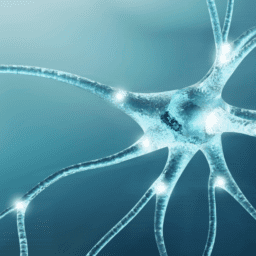Receiving a Parkinson’s diagnosis when you’re young is overwhelming enough. Being a woman with a Parkinson’s diagnosis adds an additional layer of complexities and challenges.
In this episode
In this panel discussion, our YOPD Women’s Council and special guests Dr. Jill Farmer and Vicki Dillon discuss:
- Everyone’s unique journey with medications
- The many types, classes, and possible side effects of Parkinson’s medications
- The importance of trying a variety of medication combinations until you find the best fit for you
To download the transcript, click here.
(Note: This isn’t a perfect transcript, but it’s close.)
Show Notes
- Guest speaker Vicki Dillon talks about her experimental trial with glial cell-derived neurotrophic factor (GDNF), a protein our brains naturally make that encourages the growth of new neurons. While Vicki found improvements from her treatment, GDNF as a Parkinson’s treatment is still in its experimental phase and is not available as a current treatment option
- The gold standard of Parkinson’s medications is levodopa. New levodopa treatments include Stalevo®, which adds Entacapone to the traditional carbidopa/levodopa, recycling levodopa in the gut so it can be absorbed more easily. There’s also Rytary®, a capsular form of carbidopa/levodopa, and Sinemet® CR, a large, waxy pill intended to last longer
- Duodopa® is a carbidopa/levodopa gel that is administered via a pump and tube directly into the intestines for a 16-hour period. The use of Duodopa seems to be more prevalent in the UK than the US
- Dopamine agonists are a class of medications that don’t replace dopamine but mimic the way dopamine works in the system. They can be delivered via an injection under the skin (Epogen®, Apomorphine), a medication placed under the tongue (Kynmobi™), a patch applied to the skin (Neupro®, Rotigotine), or a pill taken orally (Mirapex®, Pramipexole, Requip®, or Ropinirole). While this class of medications can be a good option for some people, others experience side effects that include impulsivity, compulsivity, excessive sexual behavior, and others
- Recyclers are a class of medications that are used as complementary medicine to help the processing of carbidopa/levodopa. COMT-inhibitors help to minimize the breakdown of levodopa in the gut. These include Entacapone and Opicapone, the latter of which is the newer version and is taken only once a day. MAOB inhibitors work to recycle dopamine in the brain and include Amantadine and Artane®
- There is a common misunderstanding in the Parkinson’s community that carbidopa/levodopa only manages symptoms for so long, so you should wait and not “use it up” in the early years after diagnosis. Dr. Jill Farmer says that this is a misconception: levodopa doesn’t become less effective simply because you have taken it for a certain number of years. The medicine doesn’t stop working, but when you have lived with Parkinson’s for many years, its progression leads to more symptoms. There are multiple ways to address this, including increasing the dose of one medicine or using a combination of medicines
- Every person with Parkinson’s has a unique combination of medications that work best for them. Medications may be taken for the treatment of their unique Parkinson’s symptoms, side effects of their current medications, or conditions unrelated to their Parkinson’s diagnosis. It is important to maintain an in-depth and consistent dialogue with your physician and, if necessary, to try different medication combinations until you find the best fit for you. Consider using this Medication Log to help you effectively monitor the side effects of your medications
Q&A with Dr. Farmer
Is there a relationship between dementia and Artane?
Artane (or trihexyphenidyl) can cause people to feel foggy and have difficulty with thought processing and concentration. This effect on cognition may be misconstrued as dementia. If the cognition losses are in fact caused by the medication, if you were to discontinue the medication, the symptoms would disappear as well.
Can all Parkinson’s meds cause impulse control disorders or is it just the dopamine agonists?
Those side effects can be caused by any meds that work on dopamine in some way. However, dopamine agonists are the most notorious for causing those symptoms.
Will you tell us more about delusional thinking? What can you do for a person with Parkinson’s who is experiencing delusions but isn’t aware of it?
I would definitely say that delusions are the hardest symptom to manage and treat. Hallucinations respond better to meds, as do impulsivity and compulsivity, but to treat a delusion can be really, really difficult. (Read this post for what to do when your person with Parkinson’s is experiencing delusions.)
What causes dyskinesia? And does it hurt?
The working theory is that it is the loss of something called a “buffering capacity” in the brain. What I mean by this is that as the nerve terminals that are responsible for the uptake of levodopa begin to wear down as Parkinson’s progresses, the process becomes much less efficient and coordinated. So, sometimes instead of having a small amount of levodopa taken up to your brain at one time, a whole bunch goes out, or you may have other neurons that don’t typically take up levodopa trying to take up the excess, and they can’t convert it as efficiently. This can lead to an inaccurate and disruptive distribution of medicines, leading to excess movements.
(From the panelists): Dyskinesia can be painful for some people, but for many, it is not so much painful as it is exhausting, frustrating, and embarrassing.
Additional Resources
Glial cell-derived neurotrophic factor (GDNF)
- Glial cell line-derived neurotrophic factor (GDNF)
- GDNF and Parkinson’s Disease: Where Next? A Summary from a Recent Workshop
- AAV2-GDNF for Advanced Parkinson’s Disease
Parkinson’s Medications: Categories and Drug Names
Dopamine Agonists
- Substance Abuse, Recovery, and Parkinson’s with Karen Frank
- Impulse Control Disorders and Parkinson’s
Community Connections
Dyskinesia
Thanks for Listening!
To share your thoughts:
- Leave a note in the comment section below.
- Ask a question by emailing us here.
- Share this show on Facebook.
To help out the show:
- Leave an honest review on iTunes. Your ratings and reviews really help, and we read each one.
- Subscribe on iTunes.
Listen & Subscribe
Apple Podcasts | Stitcher
*The Third Season of the Parkinson’s Podcast is made possible through generous support in honor of Dr. Margaret Hilgartner.

















